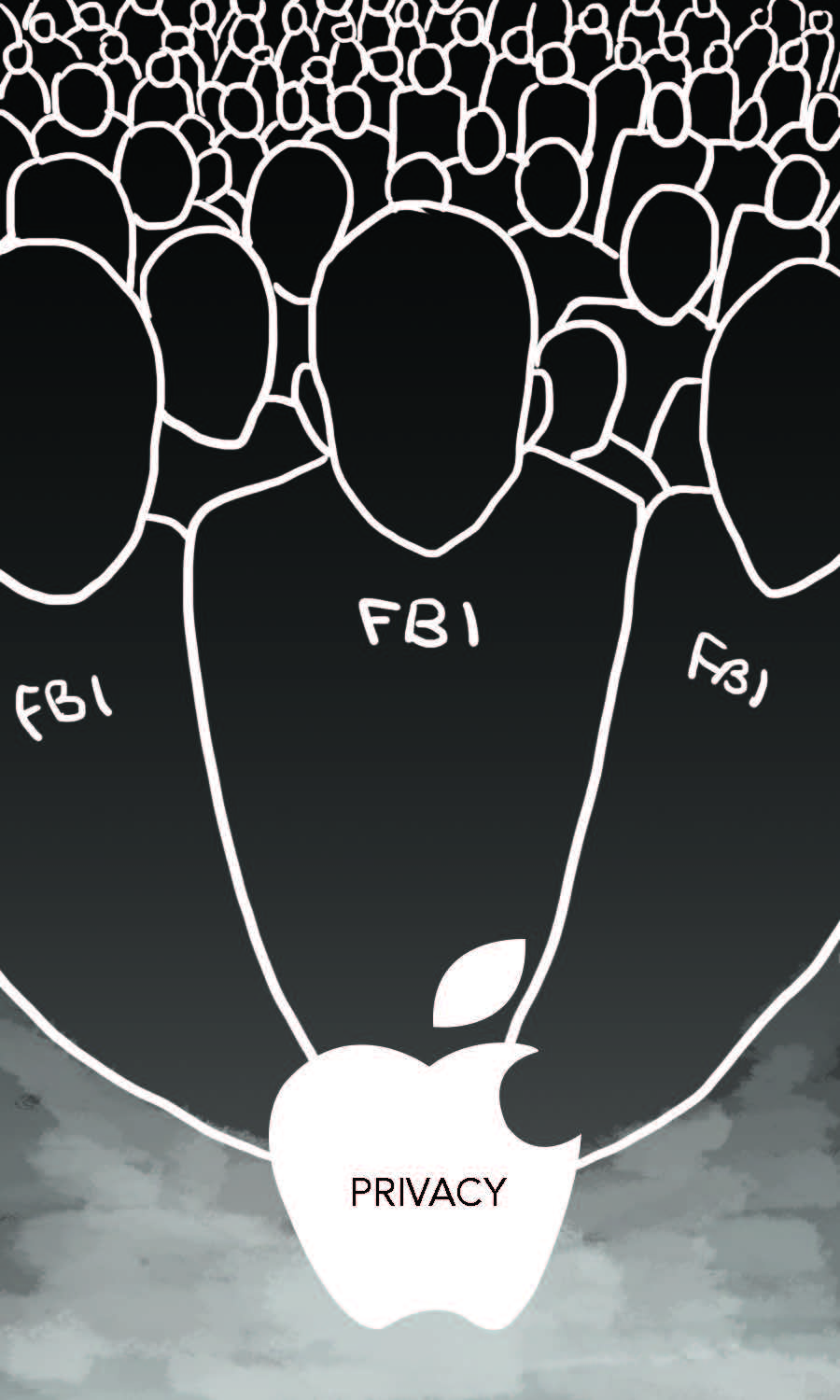![]()
Apple rejects order to unlock terrorist’s phone
Before dying in a shootout with police, Syed Farook and his wife killed 14 people in San Bernardino, Calif. in December. The Federal Bureau of Investigation is investigating the terror attack, but cannot access the information on Farook’s iPhone due to encryption. A federal judge ordered Apple to help the FBI unlock the device, but Apple refused.
“The United States government has demanded that Apple take an unprecedented step which threatens the security of our customers,” read a release on Apple’s website, signed by CEO Tim Cook. “We oppose this order, which has implications far beyond the legal case at hand.”
U.S. attorneys are arguing that “there may be relevant, critical communications and data around the time of the shooting that has thus far not been accessed, may reside solely on the subject device and cannot be accessed by any other means known to either the government or Apple.”
While this is a delicate situation, We The Threefold Advocate support Apple’s denial of the federal order in this case. Both Apple and the FBI are attempting to maintain people’s safety and security, but the potential negative effects of Apple’s building a “backdoor” could far outweigh the benefit of breaking into the terrorist’s phone.
Currently, Apple does not have a way to break into the iPhone in question—nor other phones, as Apple believes “the contents of your iPhone are none of our business” and only someone with the owner’s PIN number can access the device. Apple would have to create software that could effectively help the FBI get into Farook’s iPhone and bypass the encryption.
The government wants to create a backdoor for this one situation, not for all iPhones. “We simply want the chance, with a search warrant, to try to guess the terrorist’s passcode without the phone essentially self-destructing and without it taking a decade to guess correctly. That’s it,” FBI Director, James Comey, said in a statement. “We don’t want to break anyone’s encryption or set a master key loose on the land.”
However, Apple argues that in today’s technological age, a one-and-done backdoor does not exist. Hackers could potentially get ahold of the digital security bypass and steal countless amounts of personal data from Apple users. “In the physical world, it would be the equivalent of a master key, capable of opening hundreds of millions of locks,” Apple explained.
Apple also pointed out that complying with the federal order would set a dangerous precedent for the future. If Apple creates a backdoor for this one instance, what will stop the government from demanding they do it again and again, for other instances of terrorism?
Various organizations including the American Civil Liberties Union have voiced their support for Apple. In an opinion piece for Time, Alex Abdo, staff attorney with the ACLU, wrote, “The resulting order is not only unconstitutional, but risks setting a precedent that would fundamentally undermine the security of all devices, not just the one iPhone being debated in the news.”
Many people have pushed back, including some of the victims in the San Bernardino shooting, arguing that Apple is being unpatriotic and aiding terrorists. Comey pleaded with people to put themselves in the victims’ situation and not jump to conclusions in the matter.
“Fourteen people were slaughtered and many more had their lives and bodies ruined. We owe them a thorough and professional investigation under law. That’s what this is…Maybe the phone holds the clue to finding more terrorists. Maybe it doesn’t. But we can’t look the survivors in the eye, or ourselves in the mirror, if we don’t follow this lead,” Comey said in a statement.
However, Apple has expressed that it has “no sympathy for terrorists,” and is emphasizing the security and trust of its customers. “We are challenging the FBI’s demands with the deepest respect for American democracy and a love of our country. While we believe the FBI’s intentions are good, it would be wrong for the government to force us to build a backdoor into our products. And ultimately, we fear that this demand would undermine the very freedoms and liberty our government is meant to protect,” Apple said.
As far as the constitutionality of the case, the U.S. government is appealing to the All Writs Act—part of the Judiciary Act of 1789—in order to compel Apple to cooperate. The act states that a court “may issue all writs necessary or appropriate in aid of their respective jurisdictions and agreeable to the usages and principles of law.”
In other words, the court has the right and power to enforce compliance or submission that is necessary or appropriate. The question now is: is this level of force actually necessary or appropriate in Apple’s situation? We The Threefold believe it is not.





